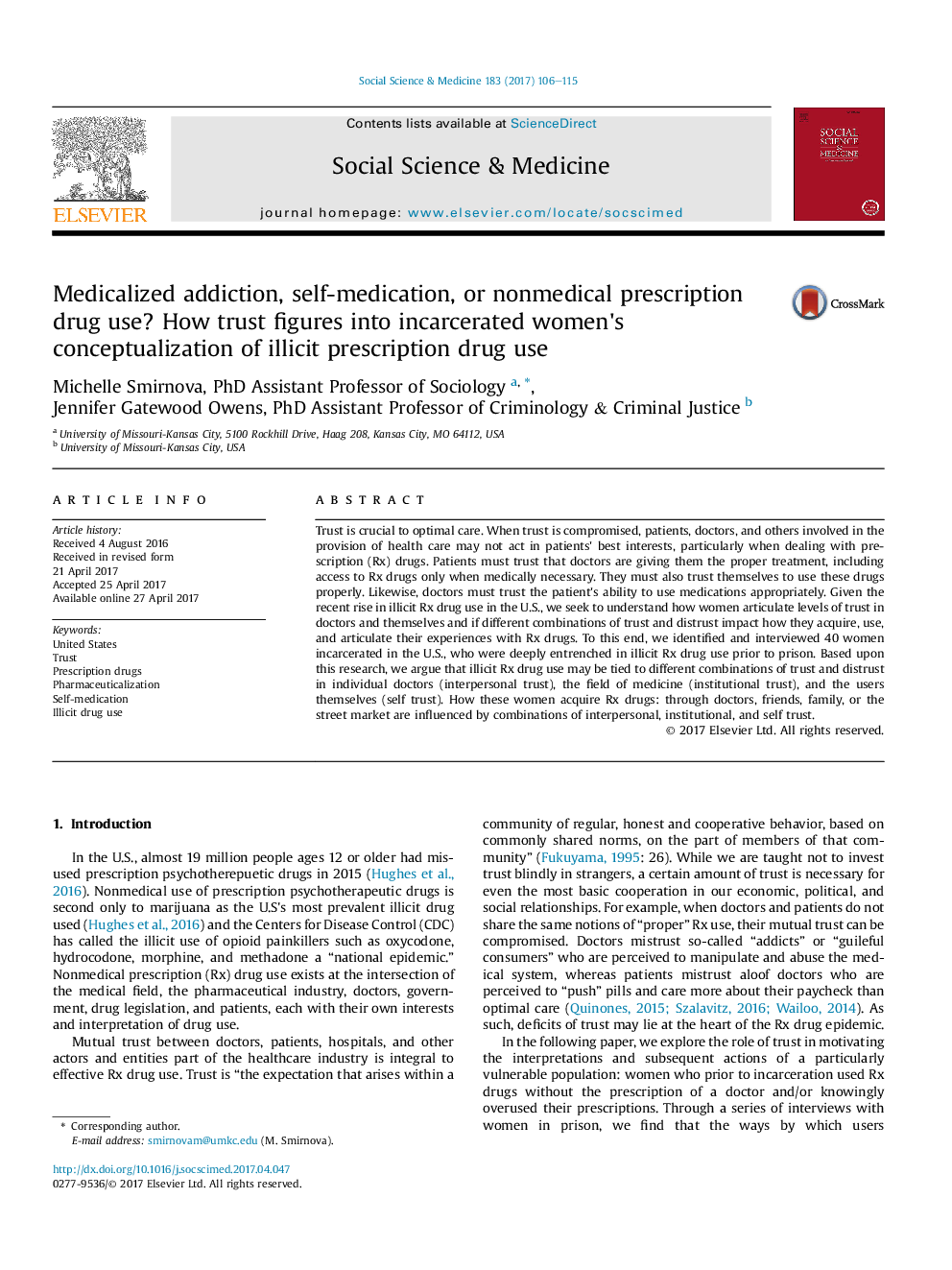| Article ID | Journal | Published Year | Pages | File Type |
|---|---|---|---|---|
| 5046557 | Social Science & Medicine | 2017 | 10 Pages |
â¢Trust plays an important role in shaping how women conceptualize and use Rx drugs.â¢Medicalized addition, self-medication, and nonmedical use are 3 types of Rx use.â¢Different types of illicit Rx drug use is caused by particular configurations of trust and distrust.â¢Trust shapes whether women see illicit Rx drug use as healthy or problematic.
Trust is crucial to optimal care. When trust is compromised, patients, doctors, and others involved in the provision of health care may not act in patients' best interests, particularly when dealing with prescription (Rx) drugs. Patients must trust that doctors are giving them the proper treatment, including access to Rx drugs only when medically necessary. They must also trust themselves to use these drugs properly. Likewise, doctors must trust the patient's ability to use medications appropriately. Given the recent rise in illicit Rx drug use in the U.S., we seek to understand how women articulate levels of trust in doctors and themselves and if different combinations of trust and distrust impact how they acquire, use, and articulate their experiences with Rx drugs. To this end, we identified and interviewed 40 women incarcerated in the U.S., who were deeply entrenched in illicit Rx drug use prior to prison. Based upon this research, we argue that illicit Rx drug use may be tied to different combinations of trust and distrust in individual doctors (interpersonal trust), the field of medicine (institutional trust), and the users themselves (self trust). How these women acquire Rx drugs: through doctors, friends, family, or the street market are influenced by combinations of interpersonal, institutional, and self trust.
